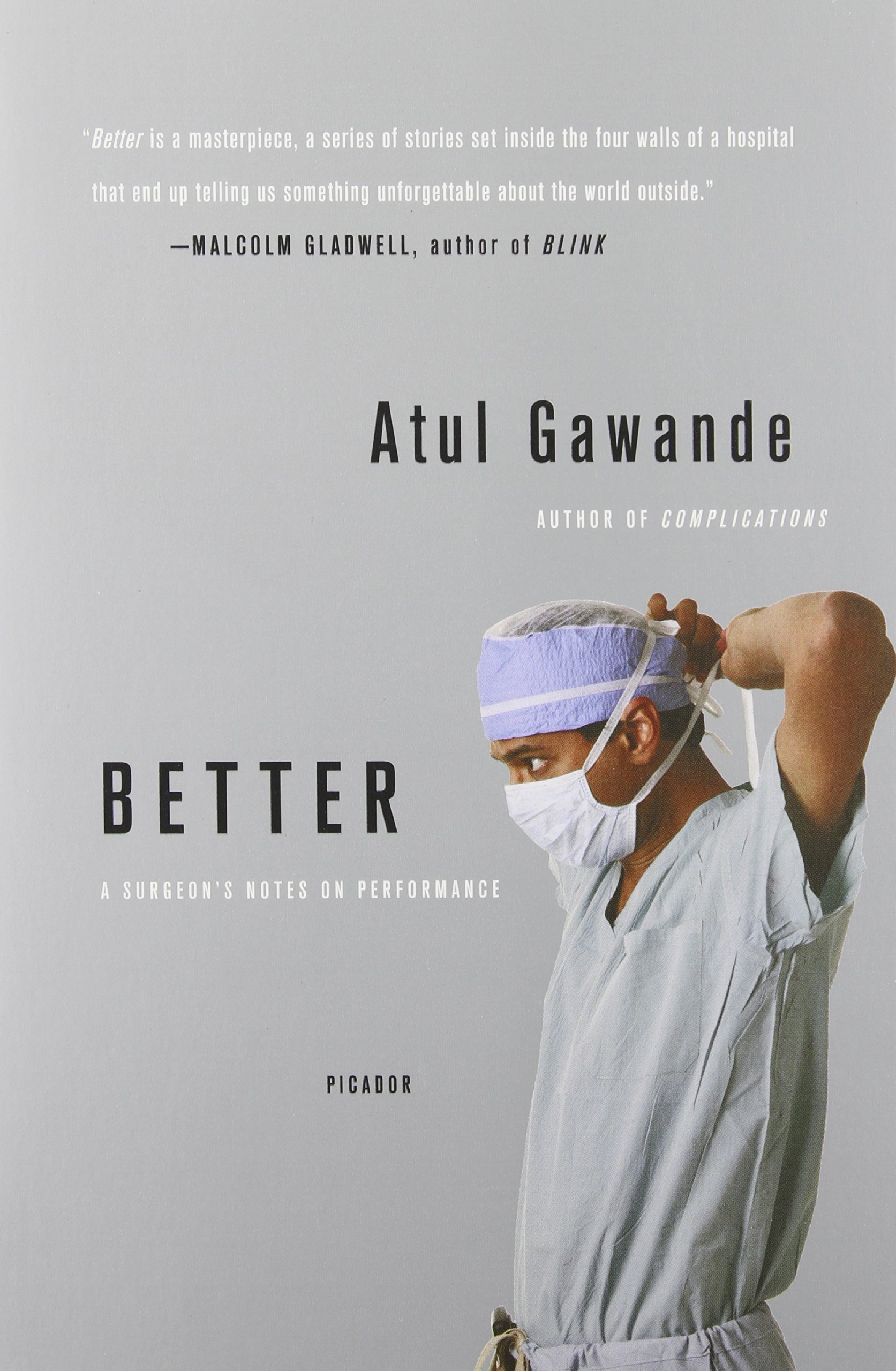26 Jan / Better: A Surgeon’s Notes on Performance by Atul Gawande


“This is a book about performance in medicine,” Atul Gawande writes in the “Introduction” of his second bestselling title (he’s got four total thus far – and counting!). “In medicine, as in any profession, we must grapple with systems, resources, circumstances, people – and our own shortcomings, as well. We face obstacles of seemingly unending variety.”
If his debut Complications grabbed my initial interest in the jaw-droppingly awe-inspiring Rhodes Scholar/surgeon/professor/MacArthur “Genius”/New Yorker/TED-anointed good doc, Better is, well, even better: “…. somehow we must advance, we just refine, we must improve,” he promises. “How we have and how we do is my subject here.”
Organized in three distinct sections that “examine three core requirements for success in medicine” plus a penetrating “Afterword,” Better consists of 12 essays that could each be read as insightful, standalone lessons on sharing and receiving wisdom. For the greatest benefit, of course, don’t miss a single word. If you decide to go audible, narrator John Bedford Lloyd stumbles over foreign names, but otherwise, he knows just when to add urgency for the best effect. We’re talking life and death here – “lives are on the line,” as Gawande reminds – so timing matters!
Part I talks “Diligence,” including washing hands (who knew such a simple, important procedure could be so difficult to enforce?), saving wounded soldiers, and responding to an outbreak of polio on the other side of the globe. Part II examines ways of “Doing Right” in examination rooms, in the court room, in the execution chamber (eek!), and especially the operating room. Part III looks at “Ingenuity,” extolling the successes of the Apgar Score (thank you, Dr. Virginia Apgar!), choosing a program rated “average” by previous data to get the “best” care, and learning unexpected adaptive advances during Gawande’s own two-month tour through India, his “ancestral home,” working in six hospitals clearly so different from his lofty Boston base.
Gawande’s pithy, astute “Afterword” offers “Suggestions for Becoming a Positive Deviant” that are just five simple actions, but should be a continuously challenging effort toward “how one might make a worthy difference”:
- Ask an unscripted question. Human interaction matters. “Sometimes you discover the unexpected. I learned … that an elderly Pakistani phlebotomist I saw every day during my residency had been a general surgeon in Karachi for twenty years but emigrated for the sake of his children’s education. I found out that a quiet, carefully buttoned-down nurse I work with had once dated Jimi Hendrix.”
- Don’t complain. “It’s boring, it doesn’t solve anything, and it will get you down.”
- Count something. Sponges included, especially in the OR, ahem! Plus, “If you count something you find interesting, you will learn something interesting.”
- Write something. “I did not write until I became a doctor. But once I became a doctor, I found I needed to write.” Proof he never sleeps! And, he adds, “[e]ven the angriest rant forces the writer to achieve a degree of thoughtfulness.”
- Change.” … be willing to recognize the inadequacies in what you do and to seek out solutions.” Uh-oh … Luddites included, I’m sure.
Bottom line on being better … shouldn’t we could all take such wisdom into our own lives? Let this good (erudite, brilliant, fascinating!) doctor show you how.
Readers: Adult
Published: 2007
